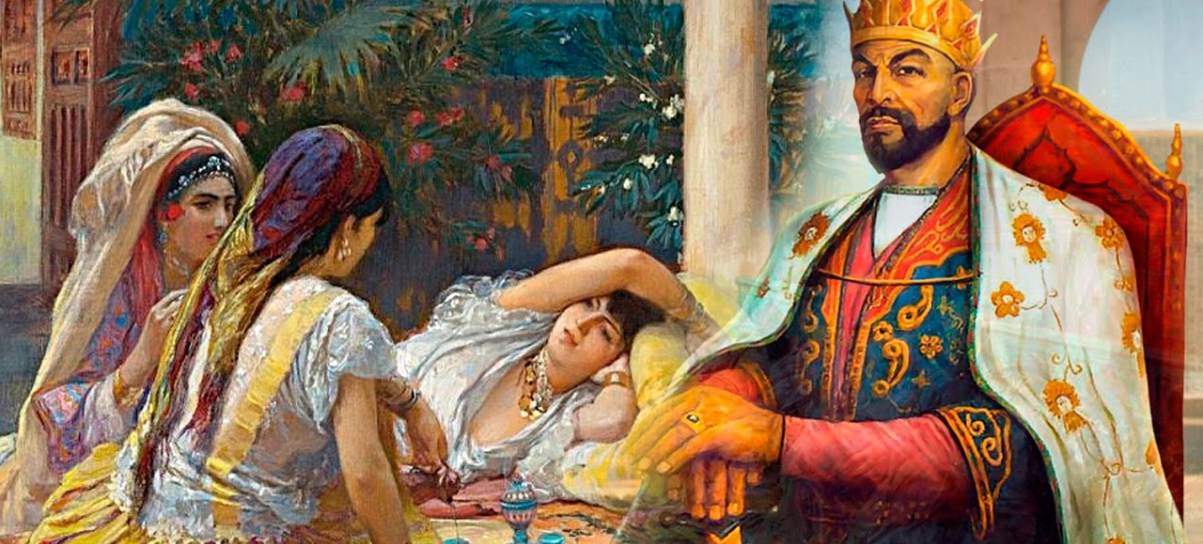Tamerlane dynasty in the history of Uzbekistan
During five years after Amir Temur's death the long dynastic war took place in Maveraunnakhr. In 1409 Temur's son Shahrukh (1376-1447) gained an upper hand over his brother Miranshakh's son Halil-Sultan and became the head of united state of the Temur Dynasty. But, in fact, it had already consisted of two states. Shahrukh ruled in Horasan with its center in Herat, and Shahrukh's son Mirzo Ulugbek (1394-1449) governed Maveraunnakhr.
Both states consisted of small fiefdoms governed by Temur descendants. Many of them aspired "for the larger portion of the cake" pretended on the larger part. Shahrukhs grandson, Sultan-Muhammad, who was appointed to rule Iran, began to demonstrate such level of independence that Shahrukh had to establish the order with the help of his army. Ulugbek was conducting an independent external policy. He was alertly following the situation in the Lower Syrdarya, from where the Uzbeks of Dashti-Kipchak were raging attacks at Khorezm.
In 1419 he supported Barak and helped him to become the Khan of the nomadic Uzbeks. In Mongolia after long discords Shirmuhammad secured victory, but he made it with the help of Mirzo Ulugbek. But soon Ulugbek had to struggle with his protegees (those who were appointed by him). In 1425 Ulugbek crashed the Moguls. In 1427 after the relations with Barak had been spoiled, Ulugbek went to Lower Syrdarya and was defeated. After Shakhrukhs's death in 1447 Ulugbek made an attempt to conquer Herat and Horasan, but failed. In 1448 Ulugbek with his son Abdullatif tried again to conquer Herat, and this time being the successful.
However, he couldn't conquer Horasan because of the riot of rulers of Horasan and incursions of nomadic Uzbeks led by Abulkhairkhan to Maveraunnakhr. In 1449 Abdullatif got to intrigue against his father, which has ended with Ulugbek's death. Abdullatif became the ruler, but he was killed in May 1450. Abdulla, who did try to revive Ulugbek's policy, took the power.
In counterweight to Abdulla, who was supported by Turks, the Emirs of Bukhara, supported by Nakshbandiya movement by Hoja Akhror, promoted their own claimant to the throne. It was Abu-Sayid (1451-1468), Miranshakh's grandchild, who was the son of Amir Temur. Abu-Sayid attracted at his side the khan of nomadic Uzbeks - Abulhair. In the summer of 1451 not far from Samarkand the great battle occurred. The nomadic Uzbeks won, Abdulla was killed. Abu-Sayid seized power over Samarkand and Maveraunnakhr.
Hoja Akhror became his closest counselor. Abu-Sayid failed in securing Horasan, because Abul-Kasim Bobur had possessed the throne of Herat since 1452 till 1457. Relations between two governors were hostile. In 1457 Abu-Sayid seized the throne of Herat, temporarily uniting two states. But another Temur descendant - Sultan Husein Boikaro, Omar-sheikh's great-grandson, who was the son of Amir Temur - tried to gain power in Herat. In 1468 Abu-Sayid went to conquer Iran and didn't come back. Sultan Husein (1469-1506) used the situation and seized the power. Abu-Sayid's sons declined from struggle for the throne and went to Maveraunnakhr. In the second half of the 15th century there was the period of political split in Maveraunnakhr.
From 1469 to 1494 Sultan Ahmed, Abu-Sayid's son, ruled in Samarkand (the power in fact was in the hands of Hoja Akhror and Nakshbandiya religious teaching), Sultan Ali-mirza - in Bukhara, Zakhiriddin Muhammad Bobur - in Ferghana. It was Bobur who made the fierce resistance against the invasion of nomadic Uzbeks led by Sheibany-khan. In 1497 the Andijan army headed by Bobur took over Samarkand. In spring 1501 Bobur failed in battle with Sheibany-khan on the Kuhak River. Bobur had to go to Kabul. From 1501 till 1506 Sheibany-khan conquered Samarkand, Tashkent, Kyat and Buldumsaz, Urgench, and Balh.
Meanwhile, weak Sultan-Husein couldn't make a serious resistance against Sheibany-khan. Only after Sheibany-khan had seized Horezm, Sultan-Husein decided to set out, but soon he died. In Herat his sons Badi az-Zamin and Muzaffar Husein - where appointed as successors. The discord between them only accelerated the fall of Herat. In 1507 Sheibany-khan conquered Herat.
We recommend to see more:
Follow us on
Sign up for our newsletters
Find our latest discounted tours, updated itineraries and latest news about the region



